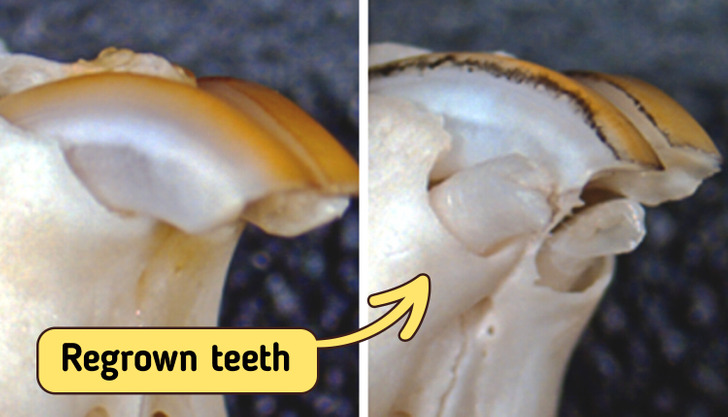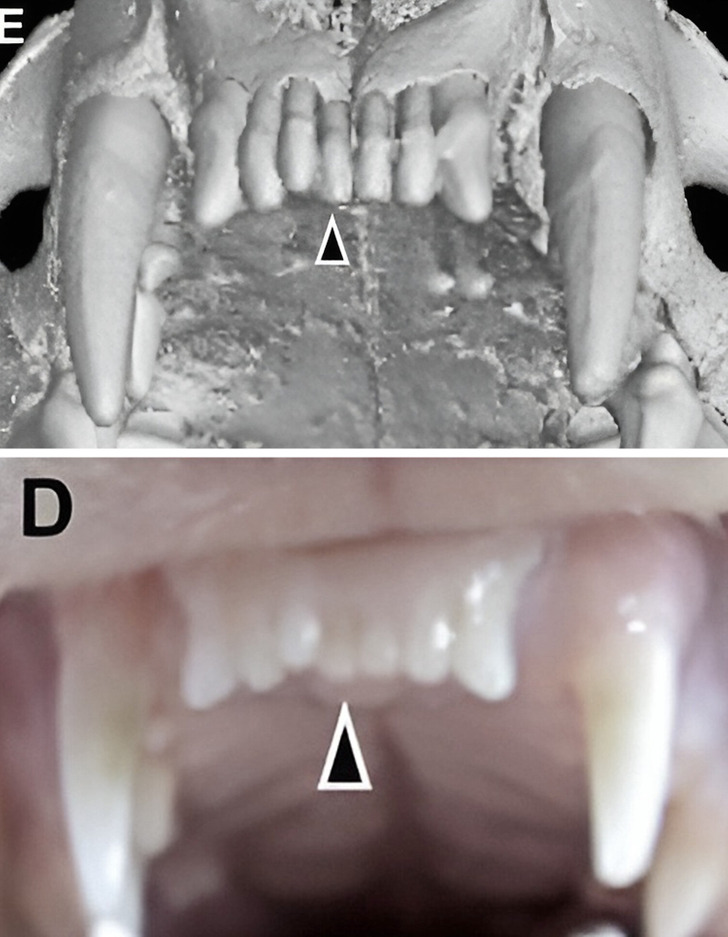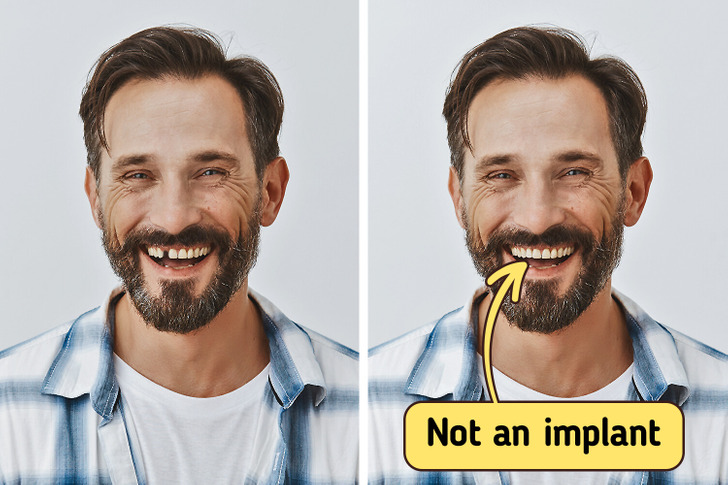The tooth fairy is a welcome guest for any child who has lost a tooth. Not only will the fairy leave a small gift under the child’s pillow, but they be assured of a replacement tooth in a few months. Unfortunately, the scenario is quite different for adults grappling with a loss of teeth. Luckily, there may be some hope thanks to a new study performed by scientists at Kyoto University and the University of Fukui.
A dental breakthrough
While the typical adult mouth houses 32 teeth, approximately 1% of the population exhibits variations of them, either possessing more or fewer teeth due to congenital conditions. Researchers have delved into the genetic factors behind cases of excessive teeth, seeking valuable insights into the potential regeneration of teeth in adults. This study is the first to show that monoclonal antibodies can help regrow teeth. It suggests a new way to treat a dental problem that currently requires implants and other artificial solutions.
A bit of science
The research team disclosed that an antibody targeting a specific gene, known as uterine sensitization-associated gene-1 (USAG-1), can induce tooth development in mice affected by tooth agenesis, a congenital condition. The findings were published in the journal, Science Advances.
As per Katsu Takahashi, a senior lecturer at the Kyoto University Graduate School of Medicine and one of the principal contributors to the study, the essential molecules crucial for the development of teeth have already been pinpointed. “The morphogenesis of individual teeth depends on the interactions of several molecules including BMP, or bone morphogenetic protein, and Wnt signaling,” says Takahashi.

On April 13, 2021, the University of Kyoto posted its first pic of newly-grown teeth in mice.
BMP and Wnt are involved in more than just tooth development; they affect the growth of organs and tissues early in the body’s development. Because drugs affecting them directly might have broad side effects, scientists are cautious. To find a potentially safer method, researchers focused on the gene USAG-1, thinking that aiming at factors countering BMP and Wnt specifically in tooth development could be more precise.
“We knew that suppressing USAG-1 benefits tooth growth. What we did not know was whether it would be enough,” added Takahashi.
The first results
Scientists looked at how different monoclonal antibodies affect USAG-1. Monoclonal antibodies are often used to treat things like cancer and arthritis and for making vaccines. Tests with this antibody showed that BMP signaling is crucial for deciding the number of teeth in mice. Also, just one treatment was enough to grow a whole tooth. Further tests confirmed these positive results in ferrets too.
“Ferrets are diphyodont animals with similar dental patterns to humans. Our next plan is to test the antibodies on other animals, such as pigs and dogs,” explained Takahashi.

Fully regrown frontal teeth in ferrets
The next steps

Now, scientists are going to test the drug on healthy adults. If that goes well, the team plans to try it on kids aged 2 to 6 with a rare tooth problem called anodontia, a genetic disorder defined as the absence of all teeth. These kids will get one shot of the drug to see if it makes their teeth grow. If everything works out, the medicine might be approved by 2030.
Takahashi sees the new medicine as an additional choice for individuals who are missing some or all of their teeth.
“The idea of growing new teeth is every dentist’s dream,” Takahashi told the Japanese newspaper, The Mainichi in June this year. “I’ve been working on this since I was a graduate student. I was confident I’d be able to make it happen.”
So hopefully, by the year 2030, humans will get a chance to have their third generation of teeth grown and say goodbye to implants. Until then, make sure to keep your teeth strong and healthy — this article will help you with that.
Preview photo credit KyotoU_News / Twitter
Tragic: 7-Year-Old Boy Found Dead After Hurricane Helene — His Heartbreaking Final Words Disclosed
Following the devastation caused by Hurricane Helene, many lives were tragically lost, including those of a young boy and his grandparents. The child’s aunt shared the heartbreaking details in an emotional online post.
According to a recent CBS News report, Hurricane Helene has claimed at least 135 lives, with the Carolinas bearing the brunt of the storm’s destruction. Officials have confirmed that over 80 people were found dead in those states.
One of the most devastating stories reported involved a mother, her son, and her parents, who became stranded on the roof of a house in Ashville, North Carolina. As the floodwaters rose, Megan Drye watched in horror as her 7-year-old son, Micah, and her parents were swept away after the house collapsed.

Though Megan was rescued, her son and parents were not as fortunate. Her sister, Jessica Drye Turner, took to Facebook to share the pain the family is experiencing.
In her post, dated September 30, Jessica opened up about the emotional struggle she faces in accepting the loss of both her parents and her nephew.
She shared, “I feel a strange sense of peace, knowing we will see them again one day. Nothing could bring them back after being with Jesus.”
Jessica went on to reflect on the peace she believes her parents now feel, free from the fear and panic of their final moments. However, she acknowledged the immense burden Megan carries. “It breaks my heart that Megan has to live with these memories, but they are no longer suffering […] It’s going to be a long and difficult journey for Megan,” Jessica wrote.

She also mentioned the challenges that lie ahead for her and their other sister, Heather Kephart. Turning her attention to her nephew, Jessica revealed, “Micah’s body was found about a quarter of a mile from where Megan was rescued […] He was such a beautiful little boy, and he always dreamed of being a superhero. Now, he is.”
Jessica then shared the heartbreaking detail of Micah’s last words, “Before he was swept away, he cried out, ‘Jesus! Please help me!’” She ended her post with a message of faith and strength, “I still call on His name, through this new grief. Strong faith. That’s my new motto.”
In addition to sharing her thoughts on the grief experienced by herself, Megan, and Heather, Jessica also provided a detailed recount of the terrifying moments her sister, nephew, and parents endured during the height of the storm.

Jessica revealed that Megan, who had been swept away by the floodwaters and became stuck between two trailers, was left waiting for three agonizing hours before finally being rescued.
Like Jessica, Heather’s friend Amanda Sprouse Simpkins also took to Facebook to share the heartbreaking news.
In her post, Amanda pleaded with her followers, saying, “Please pray for Megan, Jessica Drye Turner, Heather, and their entire family. The loss Megan has suffered is beyond words. She has lost everything. If you feel compelled to help, please donate. If you can’t, please keep them in your prayers.”
Amanda’s request for donations refers to the GoFundMe page that Heather set up for her sister.
“For Megan Drye, our miracle, who has faced a mother’s worst nightmare. She has survived the unimaginable but lost everything. The support of others will help her keep going, one breath, one step, and one day at a time,” reads part of the GoFundMe page’s description.
Adding to the heartbreak, Heather chose to use the last photo Micah’s grandmother had taken of him for the GoFundMe page. In the image, Micah is wearing a Jurassic World T-shirt, smiling brightly, while his grandmother is reflected in the door as she takes the picture.

Our deepest condolences go out to Micah’s mother, aunts, and the rest of the family as they grieve such a tragic loss.
Hurricane Helene’s aftermath continues to wreak havoc across several states, despite efforts to mitigate the storm’s impact. One such measure involved the closure of 15 schools across Georgia, as reported on September 26.
As Florida’s capital prepared for the impact of a powerful hurricane, one the region hadn’t seen in over a century, residents were strongly advised to brace themselves for the worst.
According to the BBC, Hurricane Helene, initially classified as a category 1 storm, was expected to escalate quickly into a category 4 by the time it made landfall in Florida. The official forecasts described the potential consequences as “catastrophic,” “life-threatening,” and “unimaginable.”



Leave a Reply